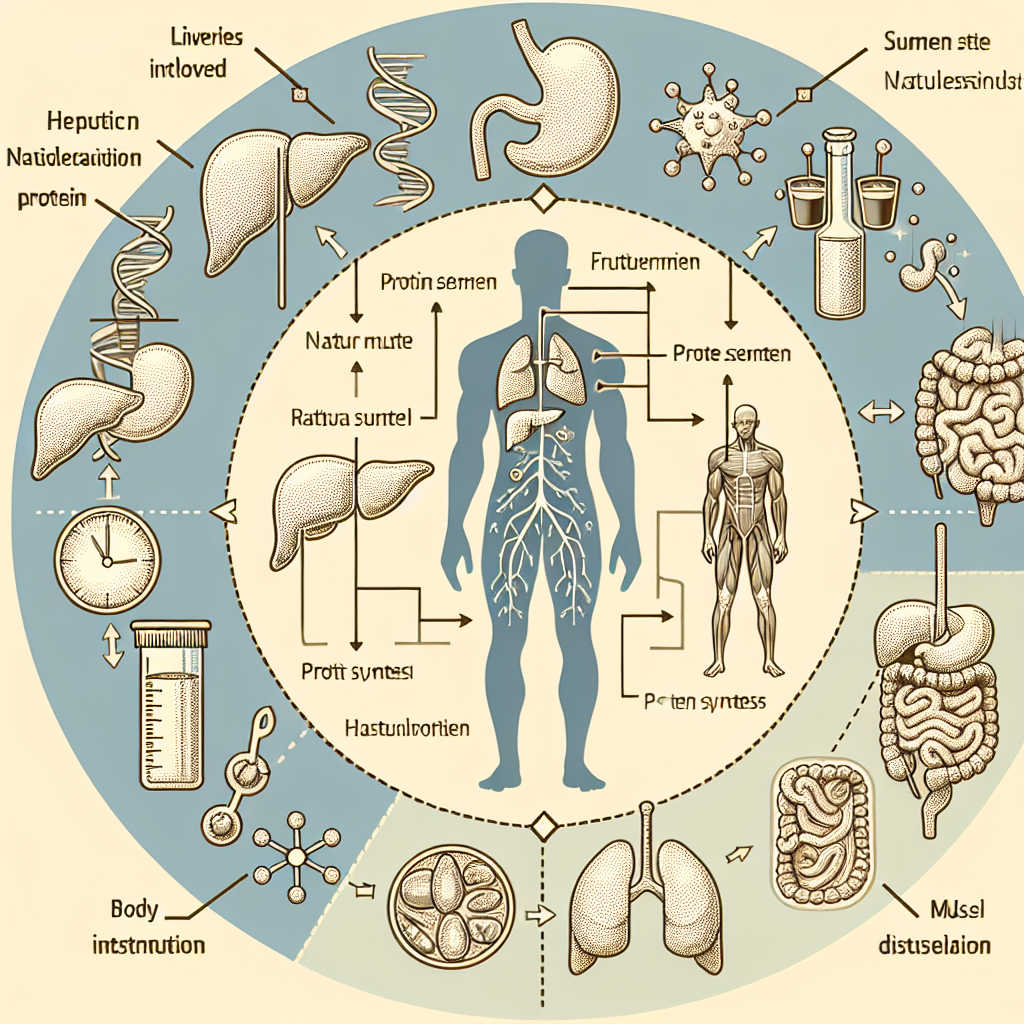
The body creates proteins through a process called gene expression, which involves the following steps:
1. DNA as the Blueprint:
• Genes in DNA contain instructions for making specific proteins.
2. Transcription:
• In the nucleus, the DNA sequence of a gene is copied into messenger RNA (mRNA) by an enzyme called RNA polymerase.
• mRNA carries the instructions from the nucleus to the cytoplasm.
3. Translation:
• At the ribosome (a protein synthesis factory), the mRNA is read and translated into a sequence of amino acids.
• Transfer RNA (tRNA) brings amino acids to the ribosome in the correct order based on the mRNA instructions.
4. Protein Folding and Modification:
• The amino acid chain folds into a specific three-dimensional shape, creating a functional protein.
• Some proteins undergo further modifications, like adding sugars or lipids.
This process ensures that cells can create the proteins necessary for structure, function, and regulation of bodily processes.
Does Your Body Create Proteins During Fasting?
Yes, your body still produces proteins during fasting, but the process becomes more selective and adapted to the body’s energy needs.
Protein Synthesis During Fasting:
1. Prioritization of Essential Proteins:
• The body focuses on producing proteins critical for survival, such as enzymes, hormones, and immune proteins.
2. Reduced Overall Synthesis:
• Since the body has limited resources during fasting, non-essential protein production slows down.
3. Amino Acid Recycling:
• The body recycles existing proteins by breaking them down into amino acids, which are then reused for making essential proteins.
Fasting and Muscle Protein:
• If fasting continues for an extended period, the body may break down muscle tissue to release amino acids to sustain critical functions. This is more likely in prolonged fasting without proper nutrient intake.
What Happens if You Are Nutrient-Deficient?
Nutrient deficiencies can significantly impair your body’s ability to create proteins because protein synthesis relies on amino acids, vitamins, and minerals as cofactors and building blocks.
Effects of Nutrient Deficiency on Protein Creation:
1. Lack of Essential Amino Acids:
• Your body cannot produce all amino acids (e.g., lysine, methionine). These must come from food. If they are deficient, protein synthesis slows or stops for certain proteins.
2. Vitamin and Mineral Deficiencies:
• Vitamin B6: Needed for amino acid metabolism.
• Zinc and Magnesium: Essential for enzyme activity during protein synthesis.
• Iron: Required for certain enzymes that synthesize proteins like hemoglobin.
• Deficiencies in these nutrients disrupt the entire gene expression and protein production process.
3. Muscle Breakdown for Amino Acids:
• If the diet lacks essential amino acids, the body will break down muscle protein to provide the necessary building blocks.
4. Compromised Functions:
• Structural proteins, enzymes, and immune proteins may be produced in insufficient quantities, leading to poor wound healing, weakened immunity, and other health problems.
How Does the Body Adapt to Nutrient Deficiency?
The body has mechanisms to adapt during nutrient deficiency, including:
1. Prioritization:
• It directs resources toward critical functions (e.g., enzymes for metabolism, immune system proteins) and reduces production of non-essential proteins.
2. Recycling Amino Acids:
• The body breaks down damaged or unnecessary proteins and reuses the amino acids for essential processes.
3. Slower Metabolism:
• The body conserves energy by slowing down protein production and other processes.
How to Support Protein Creation During Fasting or Nutrient Deficiency:
1. Break Fasting with Balanced Nutrition:
• Include high-quality protein sources (e.g., eggs, legumes, fish) and nutrient-dense foods when you break your fast.
2. Supplementation During Deficiency:
• Consider supplements for essential nutrients like B vitamins, zinc, and iron to support protein synthesis.
3. Hydration:
• Adequate water supports metabolic processes and protein folding.
4. Protein Recycling:
• Intermittent fasting may enhance autophagy, where the body recycles damaged proteins for amino acids, supporting overall protein production.
Conclusion
• Gene expression ensures the body creates proteins, even during fasting or nutrient deficiencies, by prioritizing essential functions and recycling resources.
• During fasting, protein synthesis continues but becomes more efficient and selective.
• Nutrient deficiencies impair protein production, but with balanced nutrition and holistic practices, the body can sustain itself and recover.

Leave a Reply